Chinese Communist Party explains wedding and funeral rules
- Published
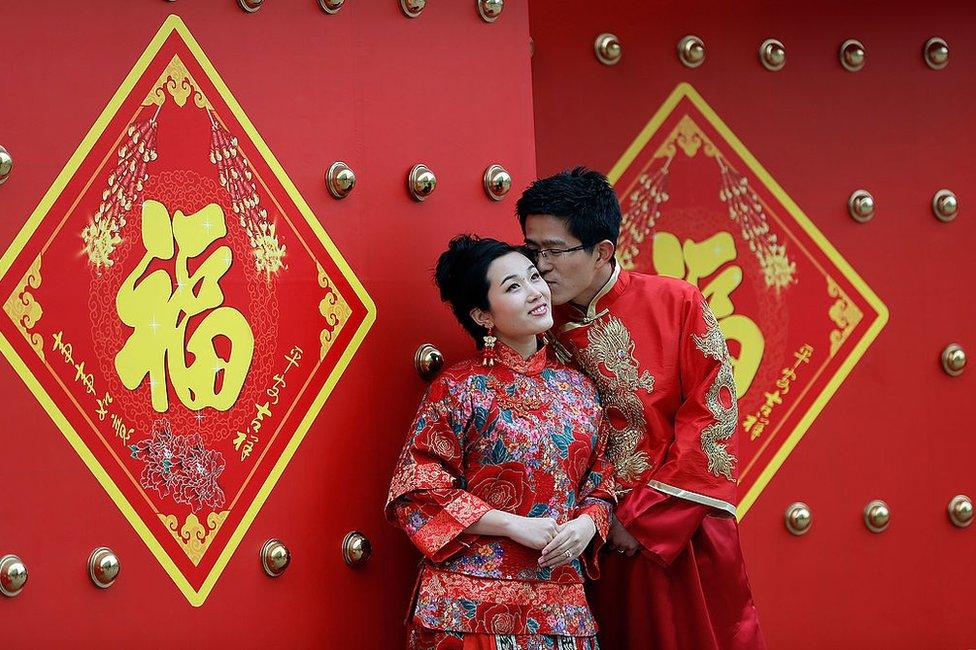
Elaborate wedding photoshoots are becoming popular among couples in China
China's Communist Party this week set out the thinking behind recent guidance on weddings and funerals for party members.
The theme was frugality when the party's disciplinary watchdog issued a raft of tweaked guidelines for its 88 million members last October.
Even though the wording was vague, Wednesday's statement on how these guidelines should be enforced remained well within the spirit of the party's ongoing austerity drive.
It is all in the name of stamping out corruption, but the perceived intrusion into life's most significant rituals sparked a backlash online.

1. Don't profit from a wedding or a funeral
It is part of traditional Chinese custom for guests at such events to give cash to the bride and groom or to the grieving family.
At weddings, gifts are seen as wishing the couple good luck, whereas at funerals the money is seen as a way of paying condolences and it also helps out with funeral expenses.
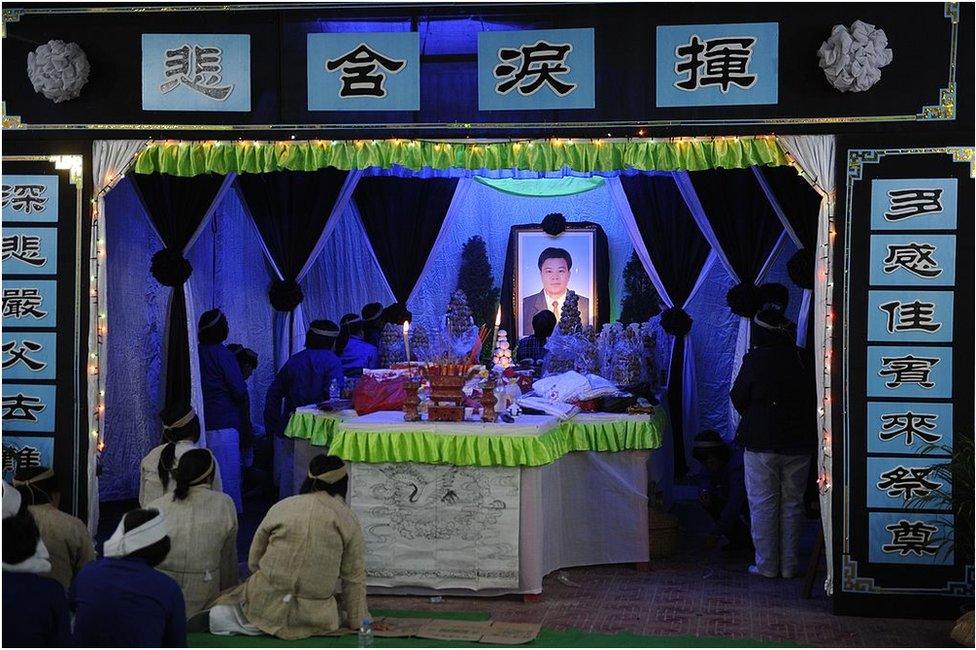
Chinese funerals can be elaborate affairs
Wedding and funerals are seen as key indicators of one's social status in Chinese culture, and there is an emphasis on holding extravagant affairs.
Now, members are discouraged from using their power to "hold large parties" and using the "manpower and resources" that come with one's position, such as employees or service staff, at such events.
They also cannot use weddings and funerals "as vehicles to make money", so the custom of giving and receiving money at these events is frowned upon.
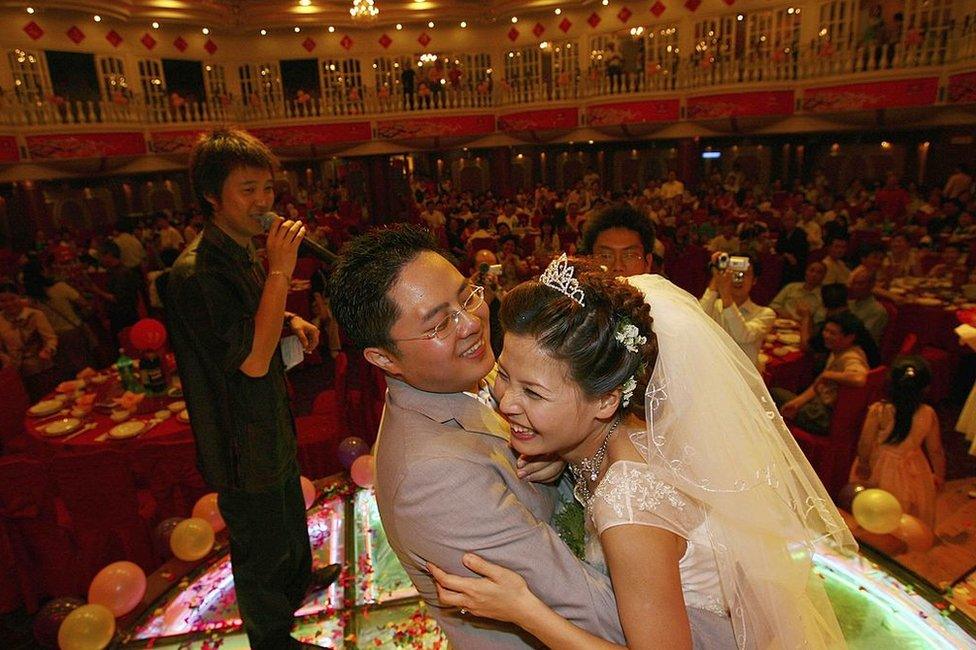
Chinese weddings can feature lavish feasts with hundreds of guests
The watchdog noted that sometimes members could hold events "on a very large scale or invite lots of guests" where in the process they would receive "large sums in gifts".

2. Don't be a nuisance
In smaller villages weddings and funerals can last days and involve mass processions.
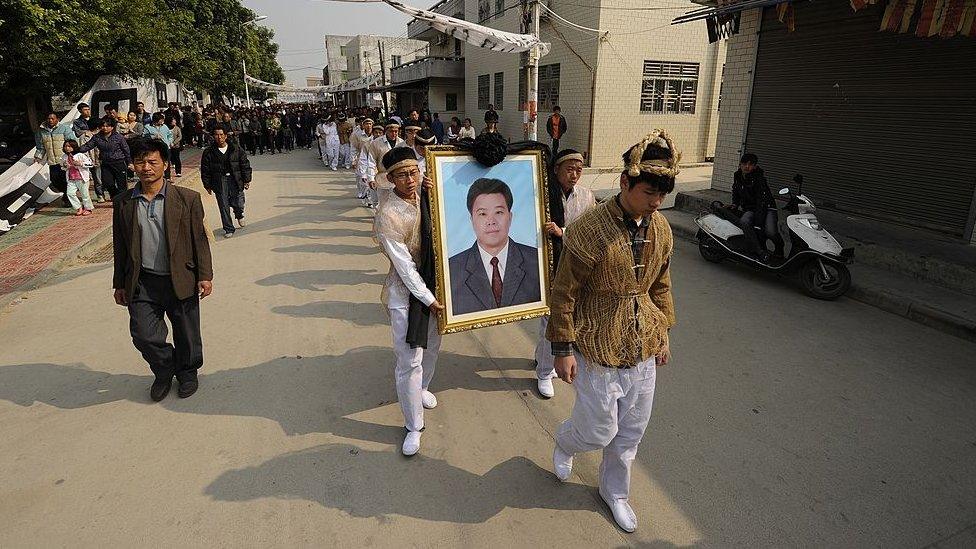
Mass processions can sometimes feature in funerals
So the guidance noted that such events cannot "disturb or obstruct daily production, lives, work, business, teaching, research, traffic and any other regular orders".
It added for good measure that they also cannot "injure or kill people" or "violate the interests of the country, collective and people".
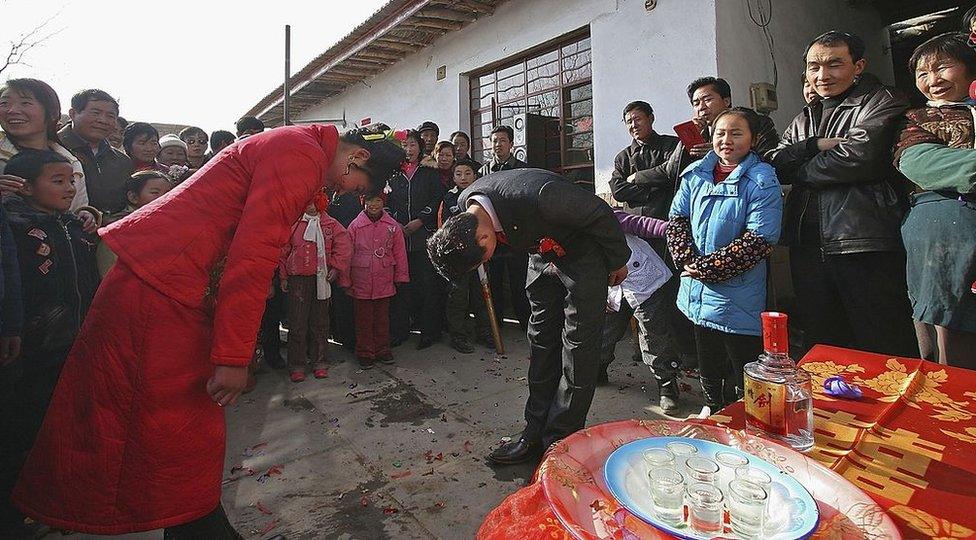
A wedding can be a major event for the local community particularly in rural villages

3. Leave behind the old traditions
Members are encouraged not to adhere blindly to their local cultural customs, although the watchdog stressed this did not mean a total ban on local traditions.
"Members, particularly those in the leadership, must note that they could cause a bad impression among the public, and so should observe customs while also organising simple and regular weddings and funerals," it said.
But the explanation cut no ice among some, as a backlash took place online.
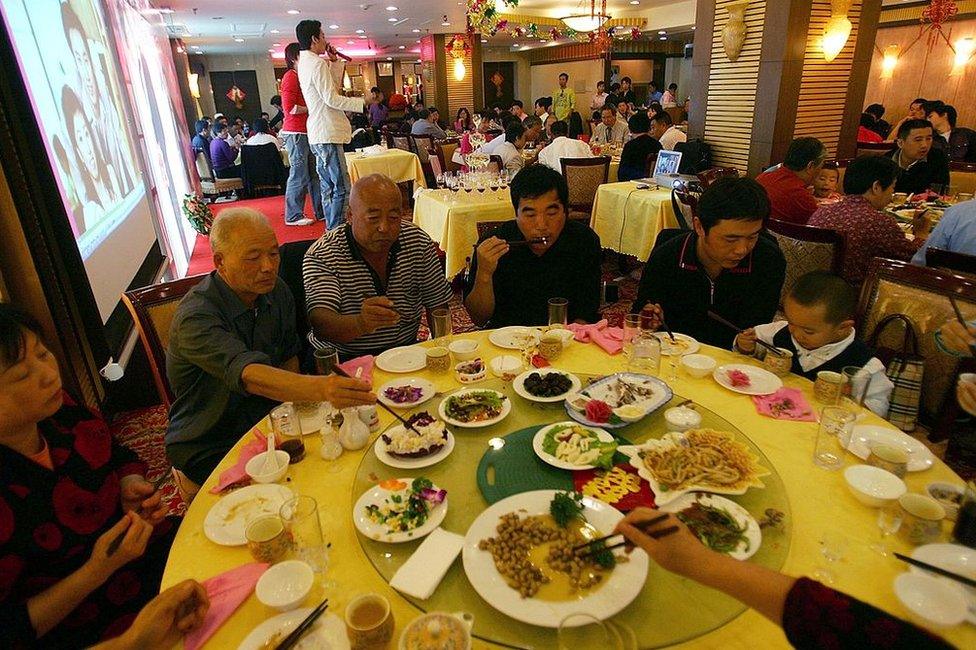
Weddings and funerals are seen as key indicators of one's social status in Chinese culture
On microblogging network Weibo, many users complained of the rules as being too overbearing and draconian.
"The enforcing of rules has become askew, even normal citizens are being regulated now," said one user.
"Holding a wedding can damage the country's interests? Are you referring to a marriage with the Dalai Lama?" mocked another.
- Published22 October 2015

- Published27 January 2015
